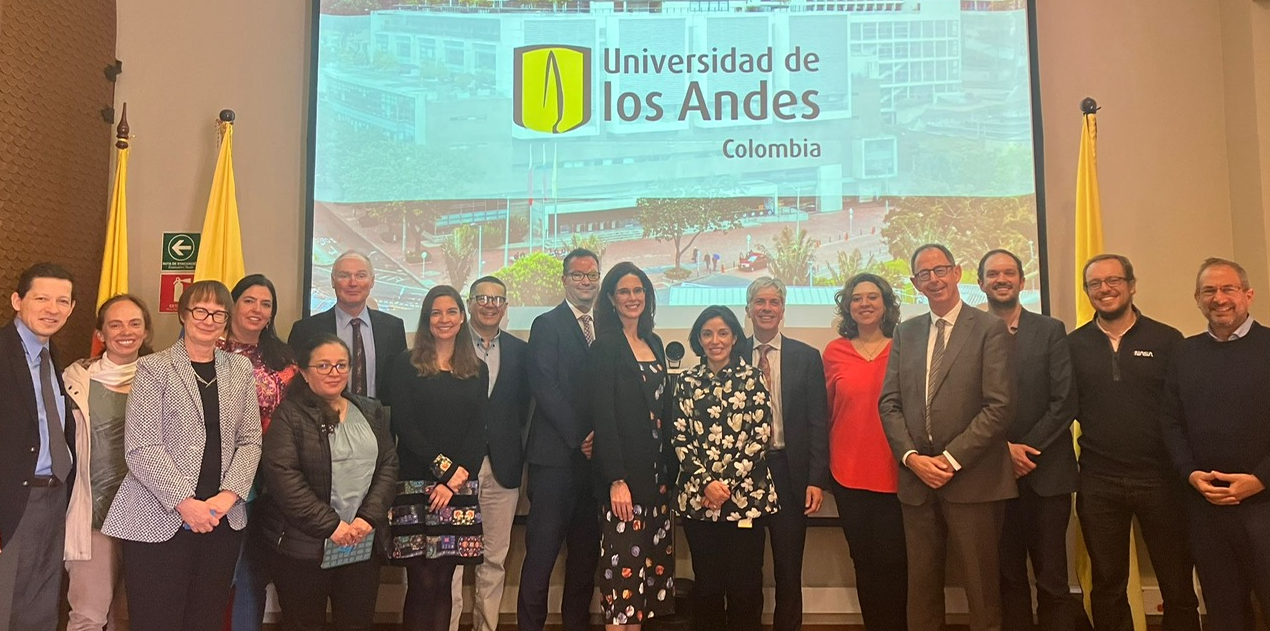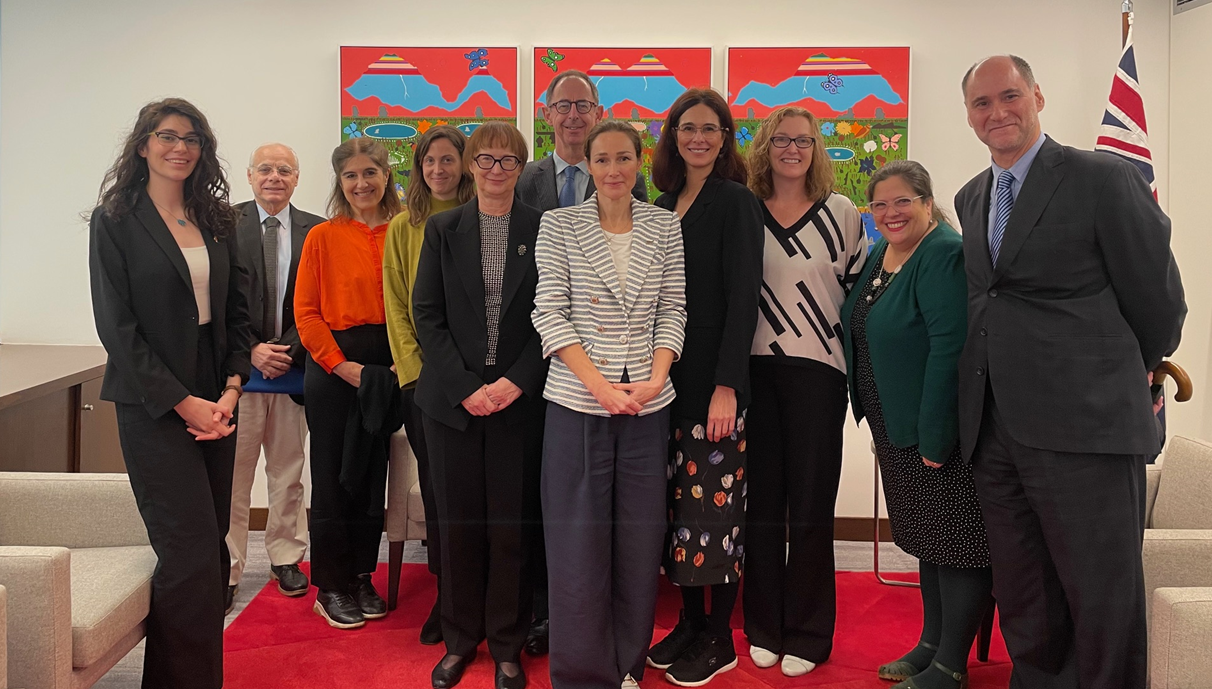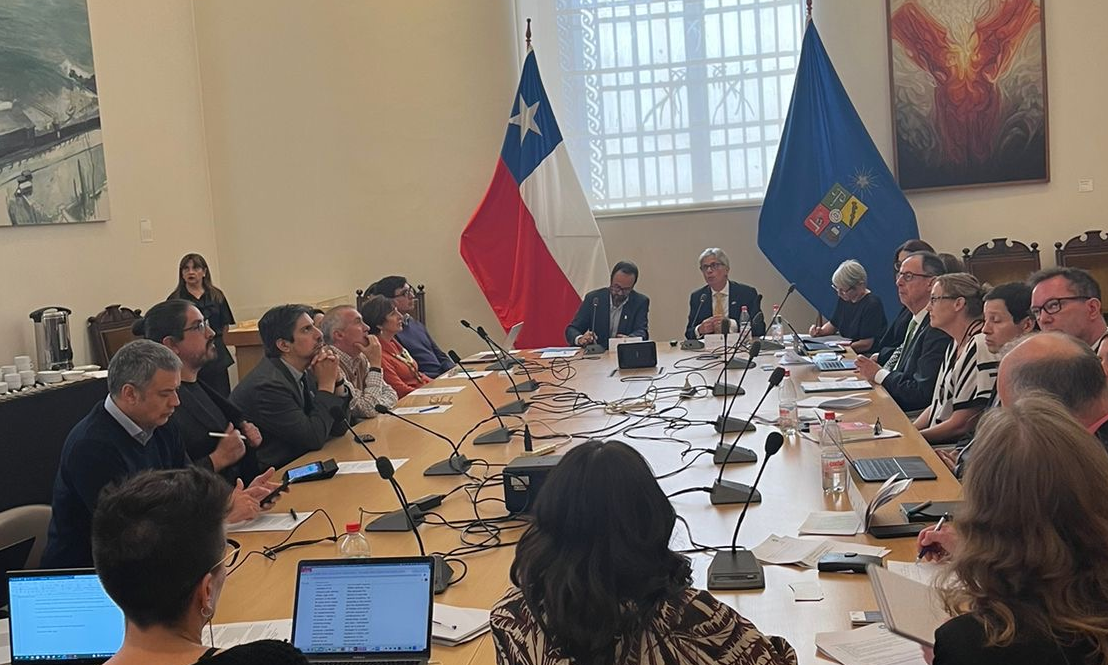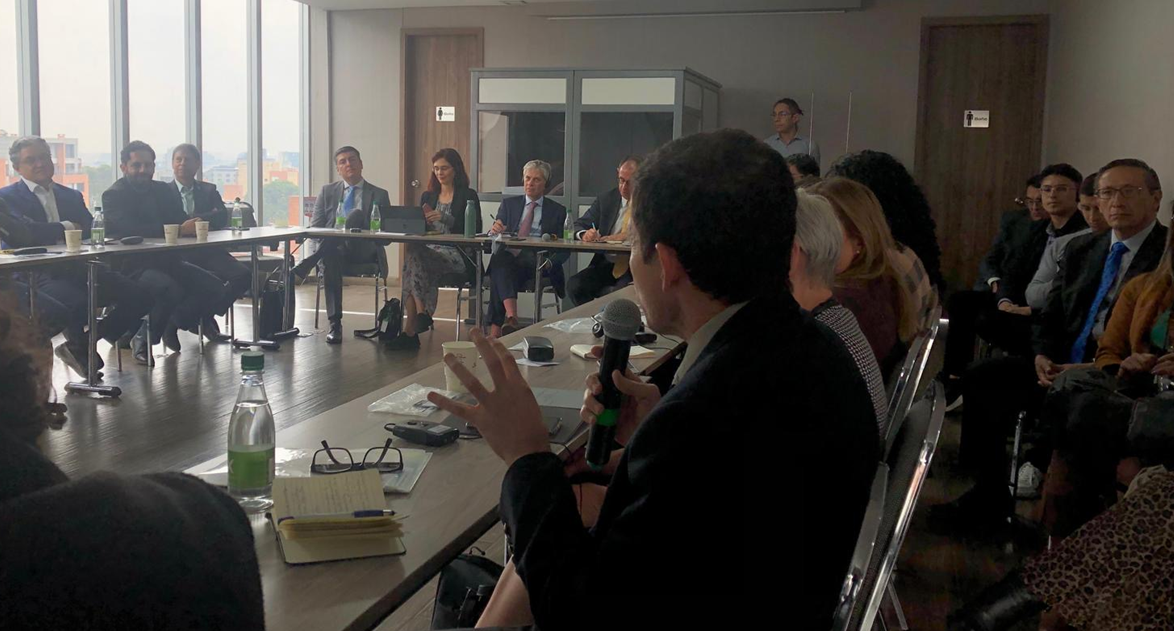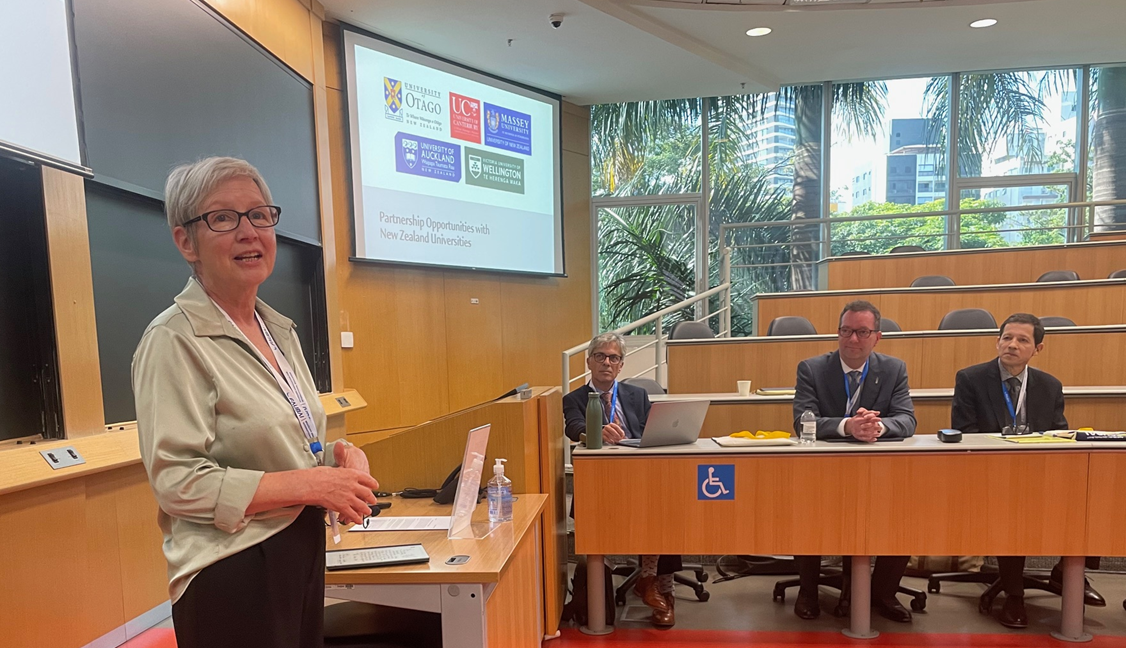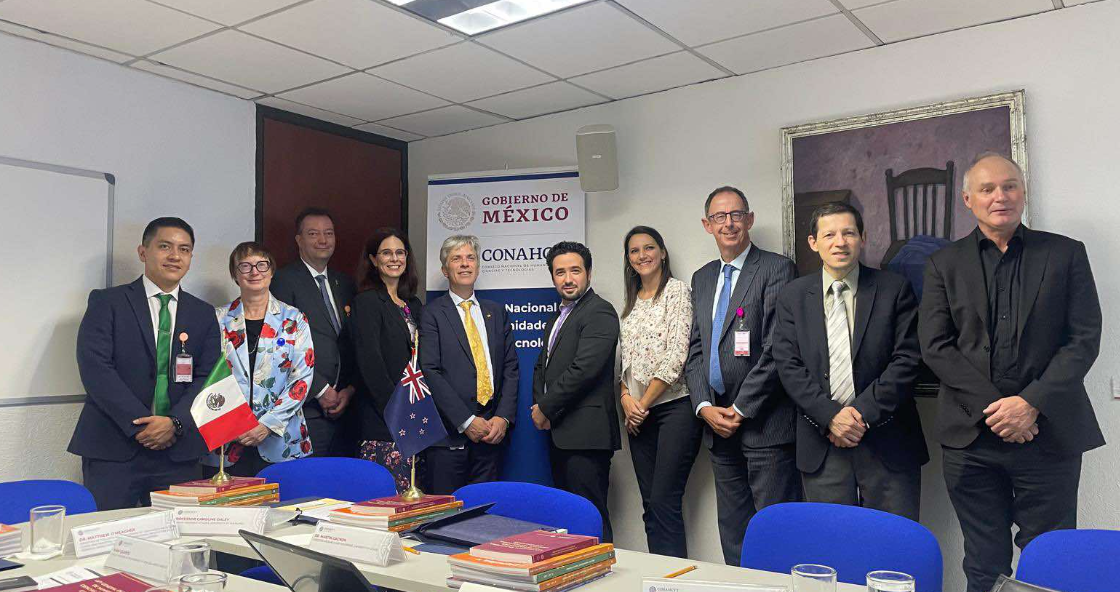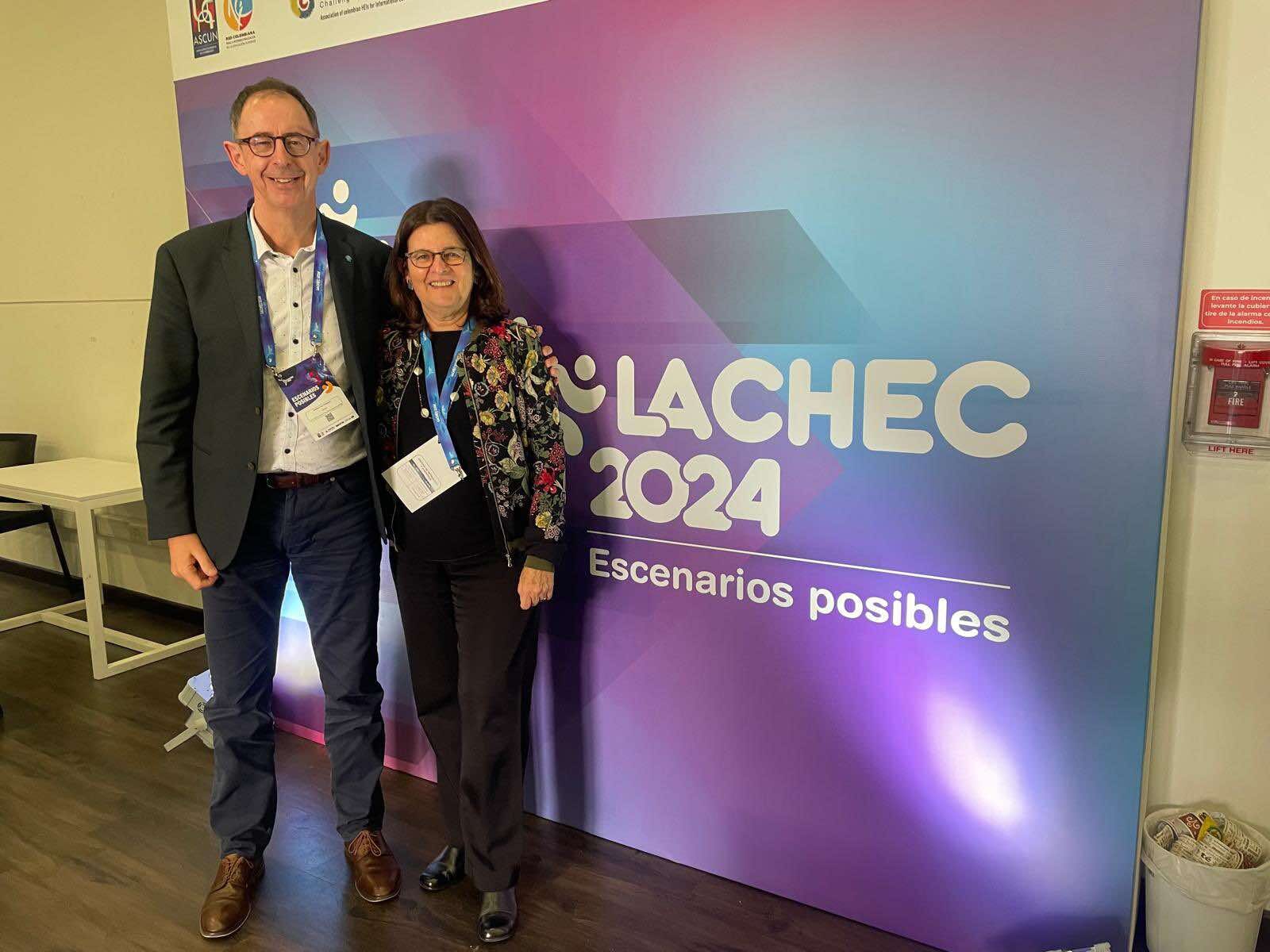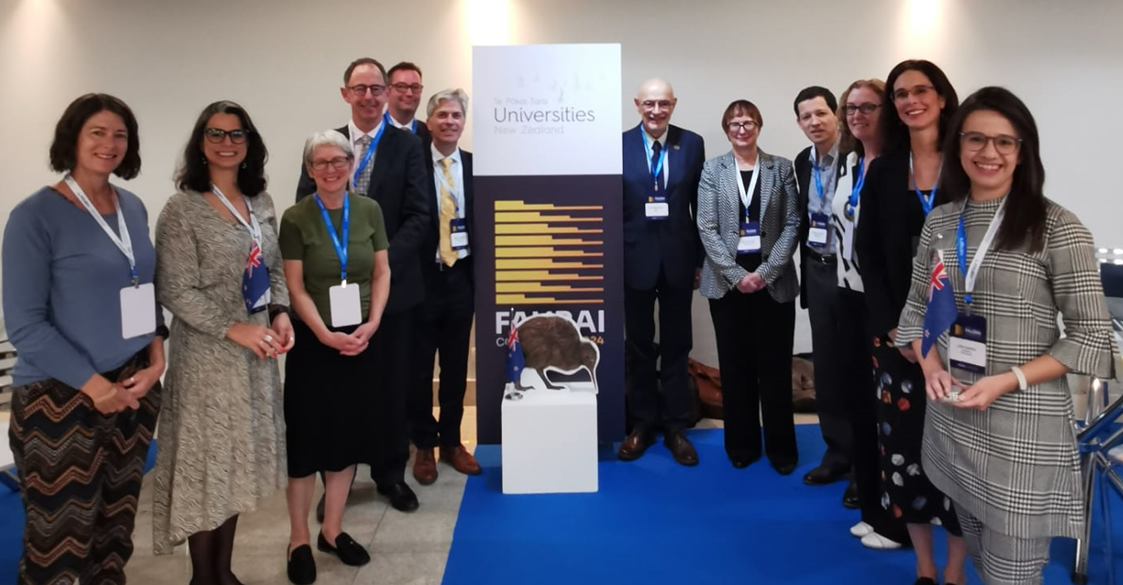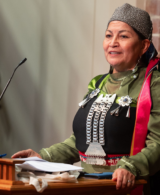University Delegations
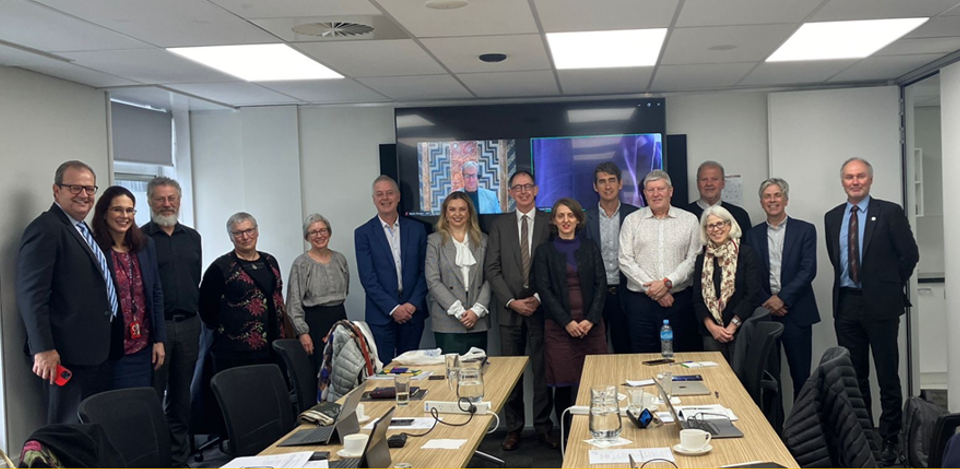
University missions deepen research links
The main priority for the Latin America CAPE in our last six months has been to enhance connections between New Zealand and Latin American universities that can flourish after we have closed down.
In partnership with Universities New Zealand—Te Pōkai Tara, the collective sector voice for all eight New Zealand universities, we have organised several delegations to or from Latin America to introduce institutional research leaders to each other.
In April we took Deputy Vice-Chancellors Research (or their representatives) from Auckland, Massey, Victoria, Canterbury and Otago universities to the prestigious FAUBAI international education conference in Brazil and to other Latin American countries. Everywhere we went the members of the delegation received outstanding support from MFAT, Education New Zealand or NZTE staff or Honorary Consuls attached to New Zealand’s embassies in the region.
Starting in Mexico, the delegation went to its best-known universities (UNAM and Tec de Monterrey) and the prestigious National Council for Humanities, Science and Technologies (CONAHCYT), and engaged as well with two agencies funding postgraduate student mobility (FIDERH and FUNED). While there, also, our director caught up with leaders of the Mexican Council of International Affairs (COMEXI).
Our next stop in Colombia began at the high-profile University of Los Andes and included a visit to the scholarship agency Colfuturo and a reception hosted by New Zealand’s embassy for local alumni and stakeholders. There was also time for two roundtables: one at the Ministry of Education (which was attended by representatives from Icetex and the Ministry of Science, Technology and Innovation) and the other with Colombia Challenge Your Knowledge (a network of top local universities promoting Colombia as a destination.)
The focus of the mission then turned to the FAUBAI conference in São Paulo. There delegation members presented the New Zealand research system and PhD offerings in a pre-conference workshop, a conference panel, and meetings with leaders of FAUBAI and CAPES, the Brazilian federal agency supporting graduate students at home and abroad. Then, after the conference ended, we met the São Paulo Research Foundation (FAPESP) in the New Zealand consulate, and joined the education agents association BELTA as they launched a New Zealand-themed issue of their members’ magazine. Before leaving Brazil, too, our Director reconnected with colleagues in the Partnerships Office of the University of São Paulo (USP).
Our two days in Chile were equally productive. Once again, we explored pathways for bilateral collaboration with the nation’s most prestigious universities – the University of Chile and the Catholic University of Chile – and its key funder of research and scholarships: ANID, the National Agency of Research and Development. As in the other countries we visited, there was strong interest in engaging with New Zealand partners on sustainability themes, indigenous education, and trilateral bids for Horizon Europe funding. On our final evening in Santiago, we interacted with more alumni and other longstanding Chilean friends in a warm celebration of educational ties in New Zealand’s official residence.
For some of the travelling party, these meetings in Chile were a fitting end to a highly informative and valuable introduction to Latin America’s research system. For others, however, there were one or two more legs of the journey still to come. These travellers first went to Argentina, where they met universities and research agencies in New Zealand’s embassy in Buenos Aires, and connected as well with the Argentine Antarctic Institute, the Argentine Council for International Relations (CARI), and the Paraguayan scholarship agency BECAL. After this, two members of the group went on to Ecuador to introduce the New Zealand university system to the University of San Francisco de Quito (USFQ) and the University of the Americas (UDLA).
From all these encounters an enhanced foundation was laid for broader collaborations between New Zealand and Latin American researchers and research students. As a whole, furthermore, the mission exemplified two of the CAPEs’ key purposes – to “enhance economic, trade, political and cultural relationships within the region” and “help New Zealand be better prepared to ‘do business’ and engage with the Asia Pacific region); delivered one of its policy objectives – “enhanced links between New Zealand and the Asia-Pacific region”; added the “new dimension to the development of New Zealand’s knowledge of Latin America” sought in the Latin America CAPE’s mission statement; created the conditions for a wider “step-change”; and modelled how the New Zealand tertiary sector can boost its engagement in a unified and nationally coordinated way in relatively underexplored regions that could be essential recruitment and research diversification options as geopolitical pressures increase.
Since returning to New Zealand, delegation members have retained their enthusiasm for exploring opportunities with Latin American peers. Even more importantly, there have been immediate outcomes from the trip. Institutionally, Universities New Zealand – Te Pōkai Tara has already signed agreements with CONAHCYT, BECAL and USFQ. At the individual level, a UniServices leader spoke at the Triple Helix research commercialisation conference organised by USP, and the leading Chilean indigenous academic Elisa Loncón visited Auckland and Wellington.
To continue the momentum generated by the mission, therefore, our Director visited Ecuador, Colombia and Brazil in August. In Quito, he reinforced ties to USFQ and UDLA, and established links to the International University of Ecuador (UIDE) as well. In Colombia, he joined ENZ and CCYK colleagues in talking about New Zealand’s outreach to Latin American universities and PhD students at a ‘LACHEC’ Internationalisation of Higher Education in Latin America and the Caribbean conference. And in only a few hours in Brazil, he reconnected with officials from FAPESP and the Science, Technology and Higher Education secretariat (SETI) of Paraná state. As this report is being written, furthermore, two Deans of Graduate Studies are now in the region promoting postgraduate student opportunities to students in Paraguay, Mexico, Colombia and Chile; our CAPE is arranging a seminar on collaboration between Argentina and New Zealand around Antarctica; and our Director is initiating similar collaboration conversations with Peruvian institutions during APEC Leaders’ Week.
Nor are these initiatives our only follow-ups to everything the April mission achieved. On the contrary: two more missions have either just been delivered or are about to begin. In late September, the CAPE brought SETI’s Secretary, his adviser, and the two Latin American representatives of EURAXESS to New Zealand to meet all our universities and key government agencies. Their time here was also organised with Universities New Zealand – Te Pōkai Tara, and culminated in a meeting with UNZ’s Research Committee. Again, all hosts and visitors saw strong reasons to continue their new connections. In mid-October, too, a delegation of early career researchers from 7 universities will return to Santiago and São Paulo for ‘speed-dating’ sessions with Chilean and Brazilian pees (followed by further dialogues with Paraná state).
As the work of our CAPE comes to an end, we are proud of all these investments in the future of our country’s relations with Latin America. More than one observer has called them our Centre’s final legacy, and one said they exemplify the reasons the CAPEs were created in the first place.
